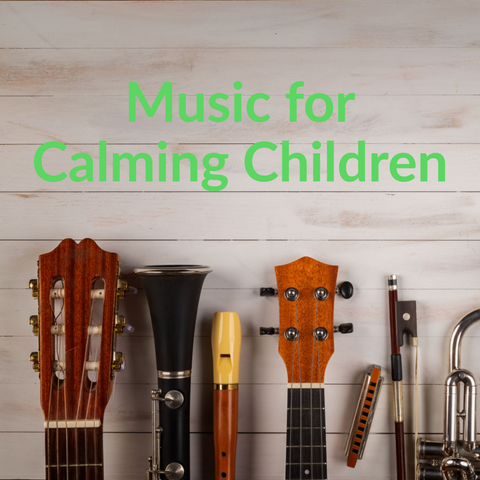
Classical Music vs. Modern Music for Calming Children
Music has always played a significant role in human life. Throughout history, different genres have emerged, with classical and modern music being two of the most popular styles.
As parents, we are often faced with the challenge of finding the best music to calm our children. 
This article delves into the pros and cons of classical music and modern music when it comes to calming children, helping you make an informed decision.
Benefits of Music for Children
Benefits of Classical Music
Promotes Concentration
Classical music, with its intricate melodies and harmonies, encourages children to focus and pay attention. It can help create an ideal environment for studying, reading, or completing homework.
Enhances Learning
Research suggests that listening to classical music can boost children's cognitive abilities, improving their memory, language skills, and spatial-temporal reasoning.
Boosts Emotional Intelligence
Classical music can evoke a wide range of emotions in listeners, allowing children to experience and understand various feelings, ultimately developing their emotional intelligence.
Benefits of Modern Music
Encourages Creativity
Modern music often features innovative beats and unique instrument combinations, inspiring children to think outside the box and express their creativity.
Supports Socialisation
Modern music is often a shared experience among children, allowing them to bond over popular songs, attend concerts together, and engage in discussions about their favorite artists.
Enhances Emotional Expression
As modern music typically focuses on personal experiences and emotions, it helps children connect with their feelings and encourages them to express themselves openly.
Calming Effects of Music
Calming Effects of Classical Music
Relaxing Melodies
Many classical compositions, such as those by Mozart or Debussy, have soothing melodies that can help children unwind and relax.
Reduces Stress
Classical music can lower cortisol levels, the hormone responsible for stress, in both adults and children. Listening to classical music before bedtime can promote a sense of calm and help children fall asleep more easily.
Calming Effects of Modern Music
Soothing Rhythms
Some modern music genres, like ambient or chill-out, feature slow tempos and repetitive rhythms, which can help children relax and reduce anxiety.
Familiarity
Children may find comfort in listening to familiar modern songs they've heard on the radio or during social events, making them feel more at ease and secure.
In Summary
Both classical and modern music offer various benefits and calming effects for children.
Classical music tends to promote concentration, enhance learning, and boost emotional intelligence, while modern music encourages creativity, supports socialisation, and enhances emotional expression.
When it comes to calming children, classical music's relaxing melodies and stress-reducing properties may be particularly helpful. However, the soothing rhythms and familiarity of modern music can also provide comfort and relaxation.
Ultimately, it's essential to consider each child's unique preferences and needs when choosing the right type of music for them.
FAQs
Is one music genre better than the other for calming children?
There is no definitive answer, as each child may respond differently to various music genres. It's crucial to observe your child's reactions and preferences to determine which type of music works best for them.
Can I combine both classical and modern music for my child?
Absolutely! Exposing your child to a diverse range of music genres can help them develop a broader appreciation for different styles and discover their unique preferences.
At what age should I start introducing music to my child?
You can introduce music to your child as early as the prenatal stage, as studies have shown that babies can recognise music they've heard in the womb. After birth, playing music for your child regularly can help develop their auditory and cognitive skills.
How long should my child listen to music daily?
There is no specific time recommendation, but incorporating music into your child's daily routine, such as during playtime, study sessions, or bedtime, can be beneficial.
Are there any negative effects of exposing children to music?
As long as the volume is kept at a safe level and the content is age-appropriate, exposing children to music generally has positive effects on their cognitive, emotional, and social development.
